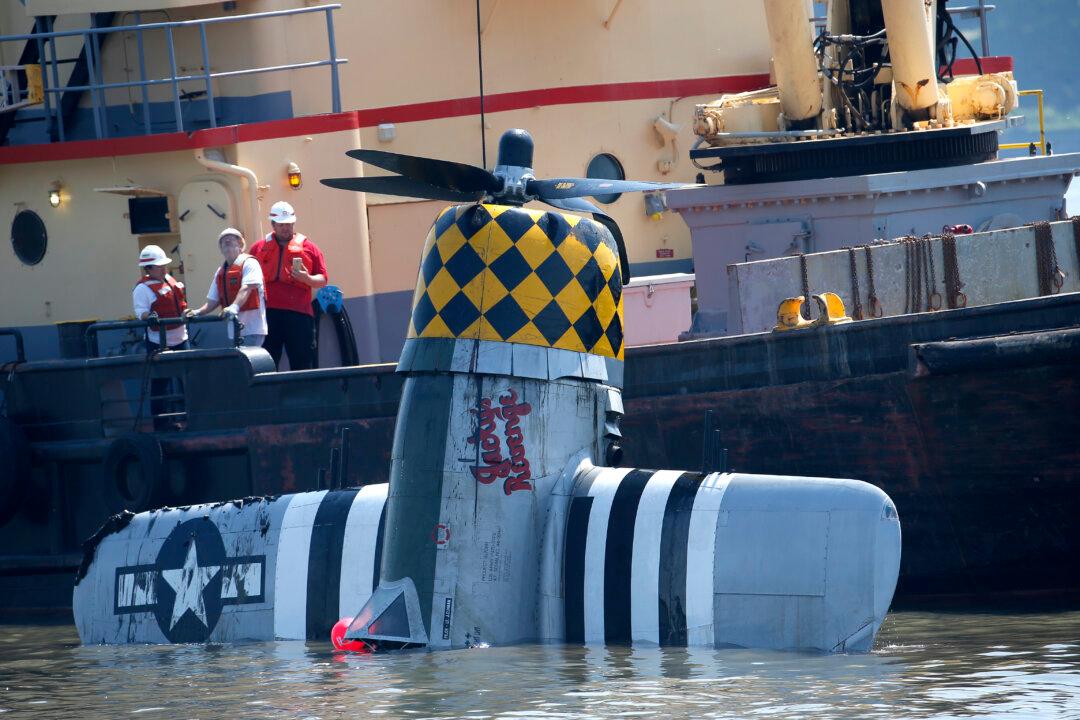NEW YORK—Police divers and Army Corps of Engineers personnel retrieved the wreckage of a World War II plane from the Hudson River between New York and New Jersey on Saturday after the vintage aircraft crashed during a promotional flight, killing the pilot.
The P-47 Thunderbolt crashed Friday during a promotion for the American Airpower Museum, which is celebrating the 75th anniversary of the P-47 this weekend.
Scuba divers recovered the body of the pilot, 56-year-old William Gordon, of Key West, Florida, about three hours after the crash.
Gordon was a veteran air show pilot with more than 25 years of experience, according to promotional material for a Key West air show last month. The website for the April air show says Gordon was an “aerobatic competency evaluator” who certified performers to perform low-level aerobatics.
Scott Clyman, flight operations pilot for the American Airpower Museum, called Gordon “an extraordinary pilot who understood the powerful message our aircraft represent in telling the story of American courage and valor.”






